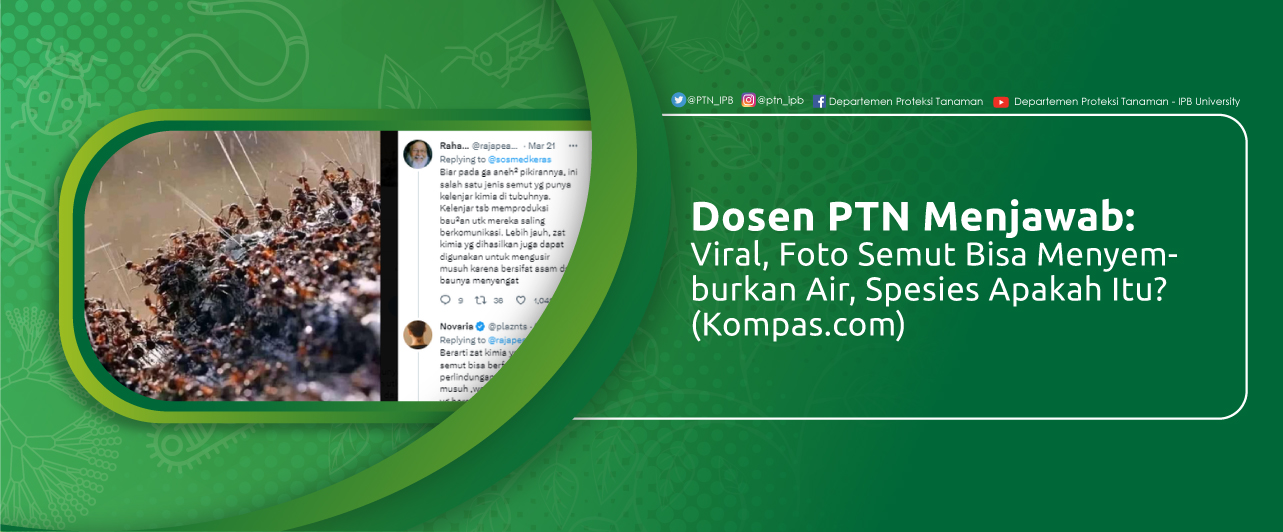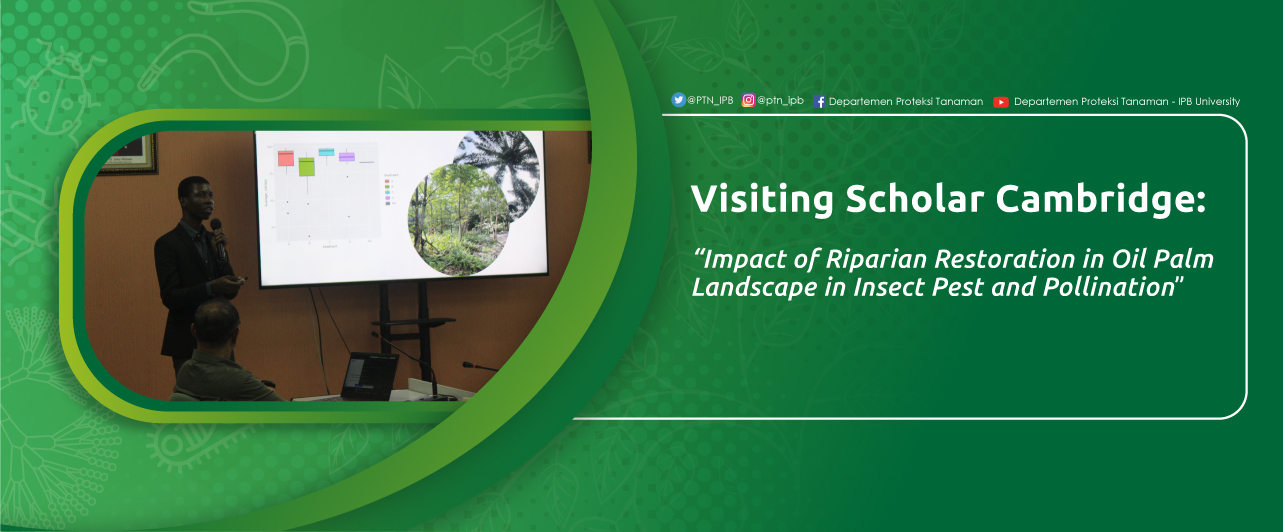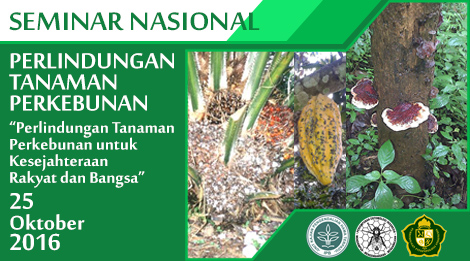
PTN Lecturer Answers: Viral, Photo of Ants Can Spit Water, What Species is That? (Kompas.com)
KOMPAS.com - Uploaded a photo of a group of ants shooting water upwards went viral on Twitter social media. The photo was shared by one netizen on Tuesday (21/3/2023). Seen in the photo, a group of ants shoot water from their bodies upwards.
"Mpsshhh," wrote this account. The upload then received various comments from netizens. "What are your little ants doing?" asked this account. "Pee together hahaha," wrote this account. "I swear, this smells and tastes really sour. Especially when we put it in our tea cup, we continue to drink it," said this account. As of Wednesday (23/3/2023), the upload had been broadcast 947,600 times, liked by 4,585 Twitter users, and retweeted 295 times. So, what are the ants actually doing when they spout water?
Self-defense of ants Lecturer in the Plant Protection Department of the Bogor Agricultural Institute (IPB) Nadzirum Mubin stated that the action of ants spouting or spraying water is an effort made to survive. "More precisely, spraying a liquid which is part of the ant's defense. This liquid can be called formic acid," he explained to Kompas.com, Wednesday (22/3/2023). This member of the Entomological Society of Indonesia (PEI) explained that this action was only carried out by a group of ants from the Formicinae subfamily. This ant is characterized by one petiole or node on its body. Formicinae ants usually live in free forests. According to him, these ants also exist in Indonesia but there is not much information discussing them. He said that this type of ant originally had a sting but it was reduced or reduced so that it could not be used against enemies. Instead, Formicinae have venom glands containing very large amounts of formic acid.
"The sting is reduced so that the defense tool uses formic acid to repel enemies or intruders," he continued. When the Formicinae ant feels threatened, it will spray formic acid at its enemy. The enemies of these ants include other larger ants, lizards or frogs.
Nadzirum added that each ant species has different formic acid. The effects of this substance depend on the type. There is formic acid which will cause a heat effect so that enemies hit by the spray will die or run away. There are also those that cause an unpleasant odor so that intruders are repelled. "The effects on humans are not too serious," added Nadzirum. Even so, according to him, humans who have allergies and are exposed to large amounts of formic acid are at risk of experiencing serious conditions. For example, if it comes into contact with the eyes it can cause visual disturbances. "But so far there has never been a report regarding this incident," he concluded.










.jpg)